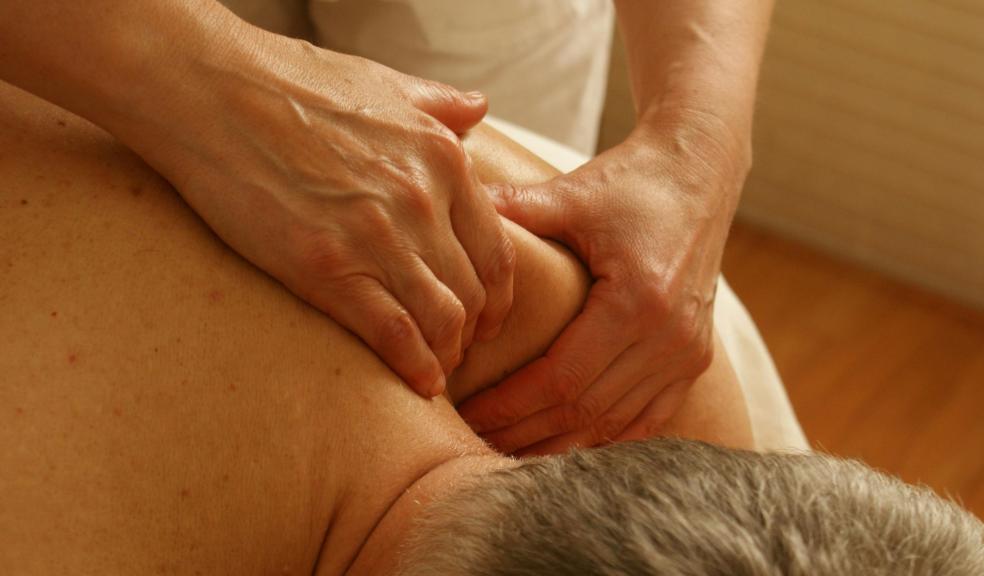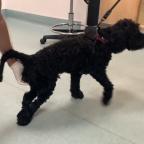
Pet spa session - the benefits of massages for you and your pets
Massage therapy has long been recognized as a powerful tool for reducing stress and promoting well-being. Massages are often associated with relaxation at spas, recovery for athletes, or special occasions. However, they can also be beneficial for reducing everyday workplace stress and even for your furry friends.
Introducing massages into your work life can boost productivity and enhance overall mood and mental clarity. Additionally, massaging your dog can also help reduce its anxiety, improve circulation, and strengthen the bond between pet and owner. Just as massages can benefit humans, they can also have a positive impact on the health and happiness of our pets.
Massage and health experts Gayfriendly say, "Everyday job stress can lead to decreased morale, heightened anxiety, and depression, along with other health-related issues. These adverse effects may result in reduced work engagement and decreased productivity in the workplace and your everyday life."
"Here are three benefits of how massages can help in the workplace:
Can relieve headaches and muscle pain—Our bodies are not designed to remain stationary for long hours, which can cause tension and strain. Massages relaxes muscles and increases circulation, helping to relieve headaches and muscle pain.
Decreases anxiety and boosts productivity - Massages are effective at reducing blood pressure and heart rate because they are relaxation-focused. The touch and pressure can increase the serotonin released in our bodies, which regulates it to return to a calmer state.
Better sleep to improve focus – Stress after work can keep you up at night. Getting a massage after work could help you relax and improve the quality of your sleep for a more productive following day. Massages can decrease the body's cortisol levels, the stress hormone, making it easier to fall asleep."
How can I use massage to reduce stress on a tight schedule?
"If you cannot get a professional massage, you can try various self-massage techniques, recommended by Northwestern Health Sciences University, at your desk or on the go.
For a soothing head massage, use your fingertips to gently massage the regions around your temples, forehead, and ears. Lightly press your thumbs into the area at the base of your skull.
To relieve tension in your shoulders, extend one arm across your body towards the opposite shoulder. Apply pressure in a circular motion on the muscle above your shoulder blade while tilting your head back. Repeat this process on the other side.
To relieve sinus pressure, place your fingertips on the bridge of your nose and gently move them down towards your cheekbones, then outwards towards the outer edges of your eyes.
For the neck area, locate the hollow where your neck meets your shoulders using both thumbs. Apply gentle pressure with your thumbs to the hollow and massage slowly."
Why would pets benefit from massages?
"Pets can benefit from massages in various ways. Massages can reduce its stress and anxiety, promote relaxation, help alleviate pain or discomfort, improve circulation and lymphatic flow, and help identify potential health risks in your pet."
Below, massage experts from Gayfriendly have shared some techniques and tips to help massage your pet:
Prioritize gentle motions and techniques to ensure their comfort and avoid fast, complex, or abrupt movements
Begin and end the massage with long, soothing strokes to relax the pet, warm up tissues, and promote blood flow
Perform kneading or rolling motions to increase blood flow, lymphatic drainage, and remove toxins from tissues
Gently press muscles against bones to spread muscle fibres and enhance circulation, using two hands on opposite sides of limbs without applying excessive pressure
Tips:
Gradually introduce massages to your pets to allow them to become comfortable with the concept.
Monitor your pet's enjoyment and be mindful of your pet's cues indicating they've had enough and need to stop.
Most importantly, consult a professional veterinarian for serious health issues or any medical issues.







